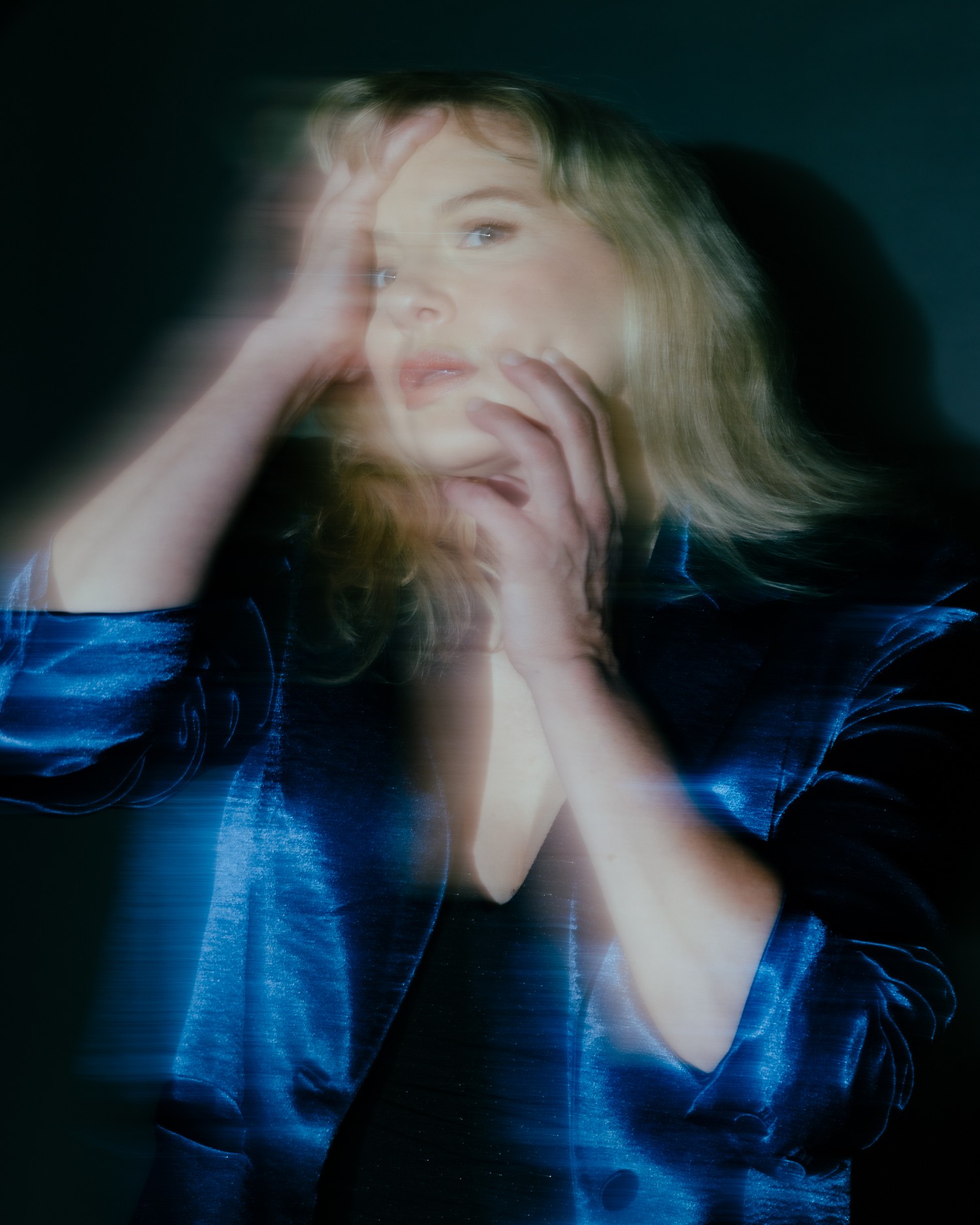We were lucky to catch up with Andrea Wittgens recently and have shared our conversation below.
Andrea, appreciate you joining us today. Can you talk to us about a project that’s meant a lot to you?
I’m actually about to release a new full-length album called “Big Dreams Little Earthlings” in two weeks on April 25th. I don’t know if it’s because these ten songs have been a culmination of abut 5 years of deep writing or simply because I’m working with an amazing production team, but it’s turned out to be the most meaningful project I’v ever done both musically and personally. It actually started during the pandemic lockdown when, like everyone else, I was stuck at home. I wasn’t playing out, going to collaborative songwriting festivals, or working with other musicians. While at first that was hard, I found myself falling down a beautiful rabbit hole of intensely personal solo writing. I also started to produce demos of these tracks from my home studio. (This was new because, in the past, I had mostly written at the piano and then taken that into the recording studio to be produced with others.) I knew these songs felt different. In the past I had often hid myself behind clever wordplay or big arrangements but these songs were unabashedly “me” at my most honest and vulnerable.
A mentor of mine suggested I look up Joshua Tree/LA-based producer Ainjel Emme to produce the recordings, and that was one of the best decisions I’ve made. Aside from being supremely gifted both musically and technically, she had an instant connection with the emotional hook of the songs and we clicked in the studio right away. For 2 years I travelled back and forth from NYC to Joshua Tree to record these 10 songs. The whole process has felt really cathartic and spiritual at a level I haven’t experienced before.
As a whole “Big Dreams Little Earthlings” is about the paradox of being human. We are all driven by such a wide spectrum of conflicting emotional states and we are constantly changing our colors. More intimately, the album is an autobiography as these songs are based on decades of the most painful, strange and joyful moments of my life. The album is super dynamic, with wild mood swings as the songs move from serenity to sadness to rage and back into love, acceptance. It goes from dark and distressed to lush and soaring. I want listeners to feel like they recognize themselves in these stories and that they’ve been immersed in an almost cinematic universe. I’m currently preparing to get these songs on stage and plan to include video installations to heighten the experience. The sonic palette is personal too. Both Ainjel and I first fell in love with classic synth pop and dark wave back in the 1980s, so we drew heavy sonic inspiration from that decade as well as 90s and beyond. I guess “Big Dreams Little Earthlings” is a love letter to my youth, expressed by the woman who survived all the decades after.
I’ve released three singles from the album already, “1984” “All The Golden Girls Are Dead” and, most recently, “Red” (for which I shot a music video with the brilliant Cortney Armitage, complete with bloody “Carrie” prom scene.)
The 4th single “Do You Want To Fall In Love?” dropped on Valentine’s Day of this year. I don’t usually write love songs but this one came out of me unexpectedly. It’s still got some blood on the floor though.
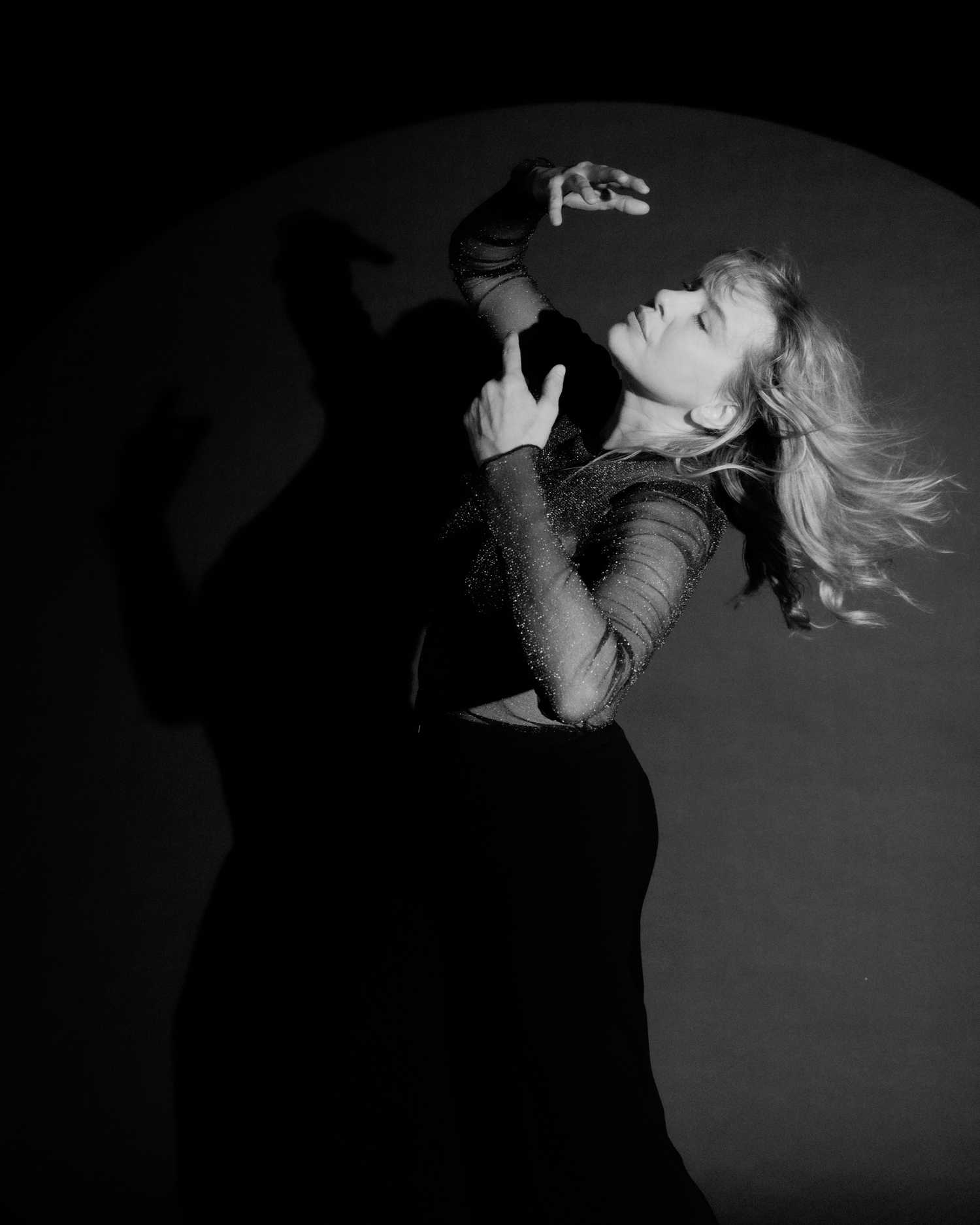
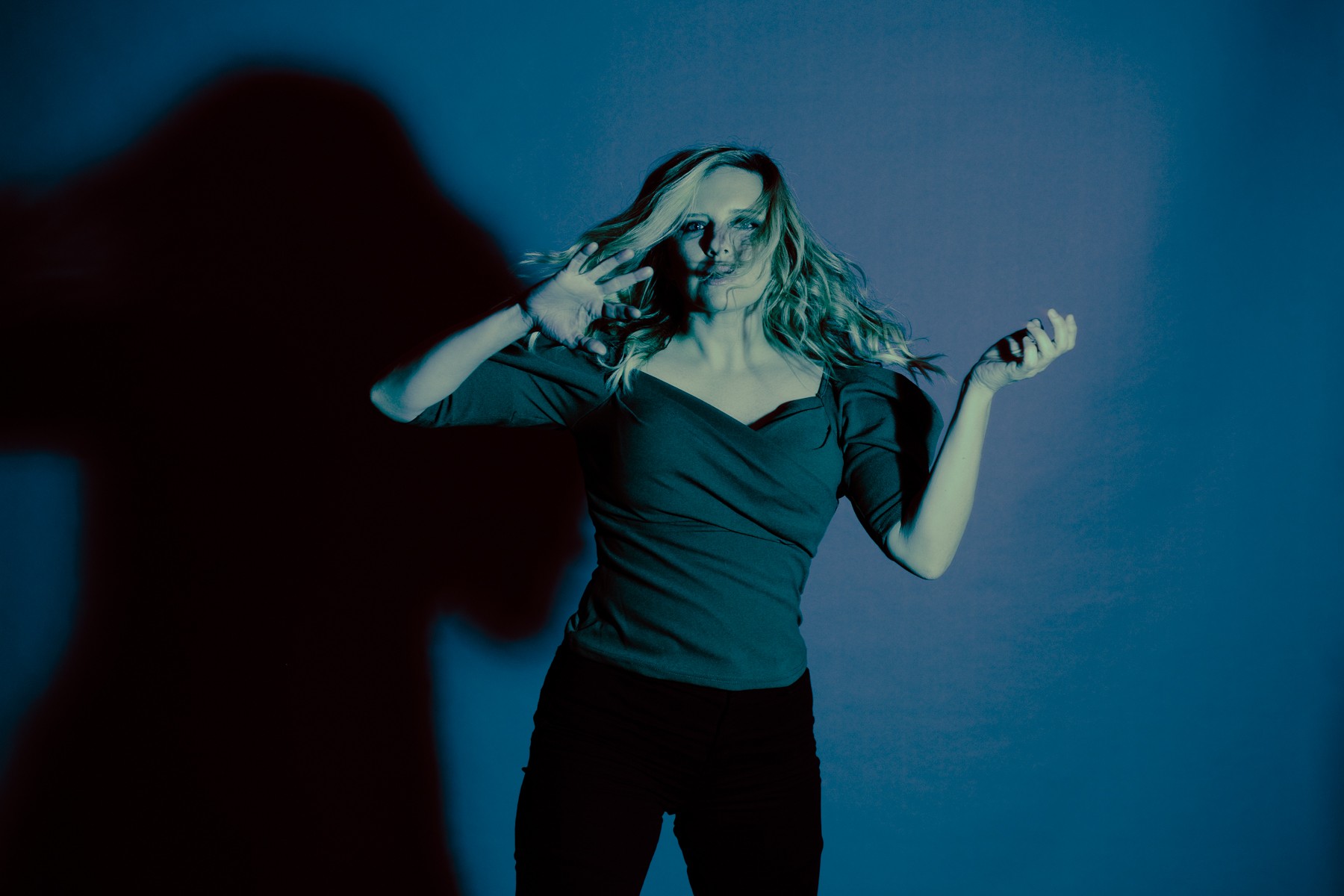
Andrea, love having you share your insights with us. Before we ask you more questions, maybe you can take a moment to introduce yourself to our readers who might have missed our earlier conversations?
I don’t really remember how or when I decided to become a professional musician and performer. It’s just always been my north star as far back as I can remember. I grew up in Nova Scotia, raised on a wealth of music—my father’s jazz records, classical piano lessons, 80s synth pop from the kitchen radio, and the Scottish fiddle music of the region. It was all around me, and I always felt there was my own musical voice inside me; it just needed to come out. When I was young, I used to tear up when I was singing, like it was overwhelming me. At first, I pursued the music dream to university, studying classical piano, but I didn’t feel I belonged in that scene or that career path. I ended up in grunge-era Seattle and cut my songwriting teeth in the coffeehouses and dive bars. It wasn’t natural at first. The music part had always been easy. I grew up always messing around with melodies and chords, but I had no idea about the words. When it came to the lyrics, I thought I’d just meet a poet, and we’d partner in the songs like Elton John and Bernie Taupin. Perhaps out of impatience of waiting for the poet who never came, I started putting my own words down on paper and was pretty quickly smitten with the craft of songwriting. I’ve written over 150 songs by this point and released 7 collections. Although I love my deep solo writing sessions, I’m also a huge fan of collaborative songwriting festivals. I’m particularly grateful for my 11 years with The Holiday Music Motel festivals in Sturgeon Bay, WI, and more recently, my retreats with The Goffin-King Foundation. The longer I do it, the more I become a worshipper of the craft and manifesto of songwriting.
I say things through song that I can’t articulate face to face because of fear, shame, or simply not having the words in plain English. So, in some ways, being a singer-songwriter is not only my chosen profession but also a spiritual necessity. I can’t imagine NOT being a musician and songwriter. I think if I stopped creating full time, I would feel like a vital part of me was repressed. My mission when I write and perform is to be as raw and truthful about my human experience as I can (all of it—the good, the bad, the ugly) so that listeners might hear themselves and their own stories. I want people to listen and feel seen and… maybe less alone?
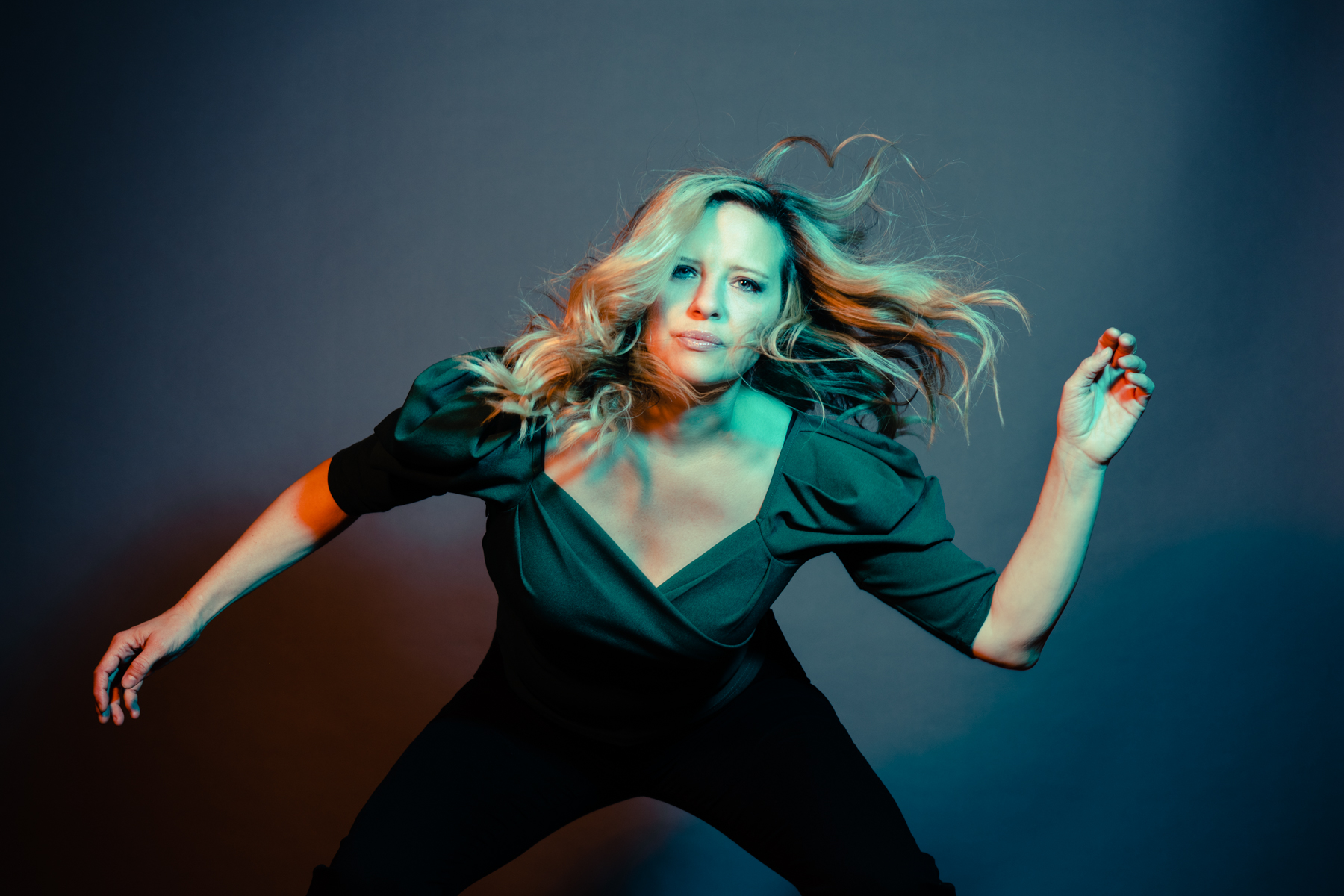
We often hear about learning lessons – but just as important is unlearning lessons. Have you ever had to unlearn a lesson?
I had to unlearn creative “people-pleasing” in my musical projects. Artists constantly receive advice on their craft and the business of their craft from colleagues, friends, family, strangers, and of course, all those ‘experts’ selling plans and workshops on social media. Everyone has an opinion, and that can get really overwhelming—”You sound best like this.” “You need to be edgier/more mainstream.” “Do this, and you’ll succeed.” I’ve broken my back (and my spirit) trying to please too many people—it’s a creative killjoy. I’ve tamped down my own voice and instincts in the recording studio before and afterward ended up feeling like I didn’t indulge my own unique vision.
Over the years, I have learned to check in with myself frequently (very frequently, because the overwhelm can sneak up on you). I listen to my gut—both literally and metaphorically—to tell me if I’m staying true to myself or wandering off my path onto someone else’s. That said, I’ve also had to be open to outside ideas because I grow as an artist that way too. It’s a tricky balance of finding the few trusted voices through the noise. Finding a music community of like-minded artists and fans has helped me immensely. I’m no longer trying to be everything to everyone.
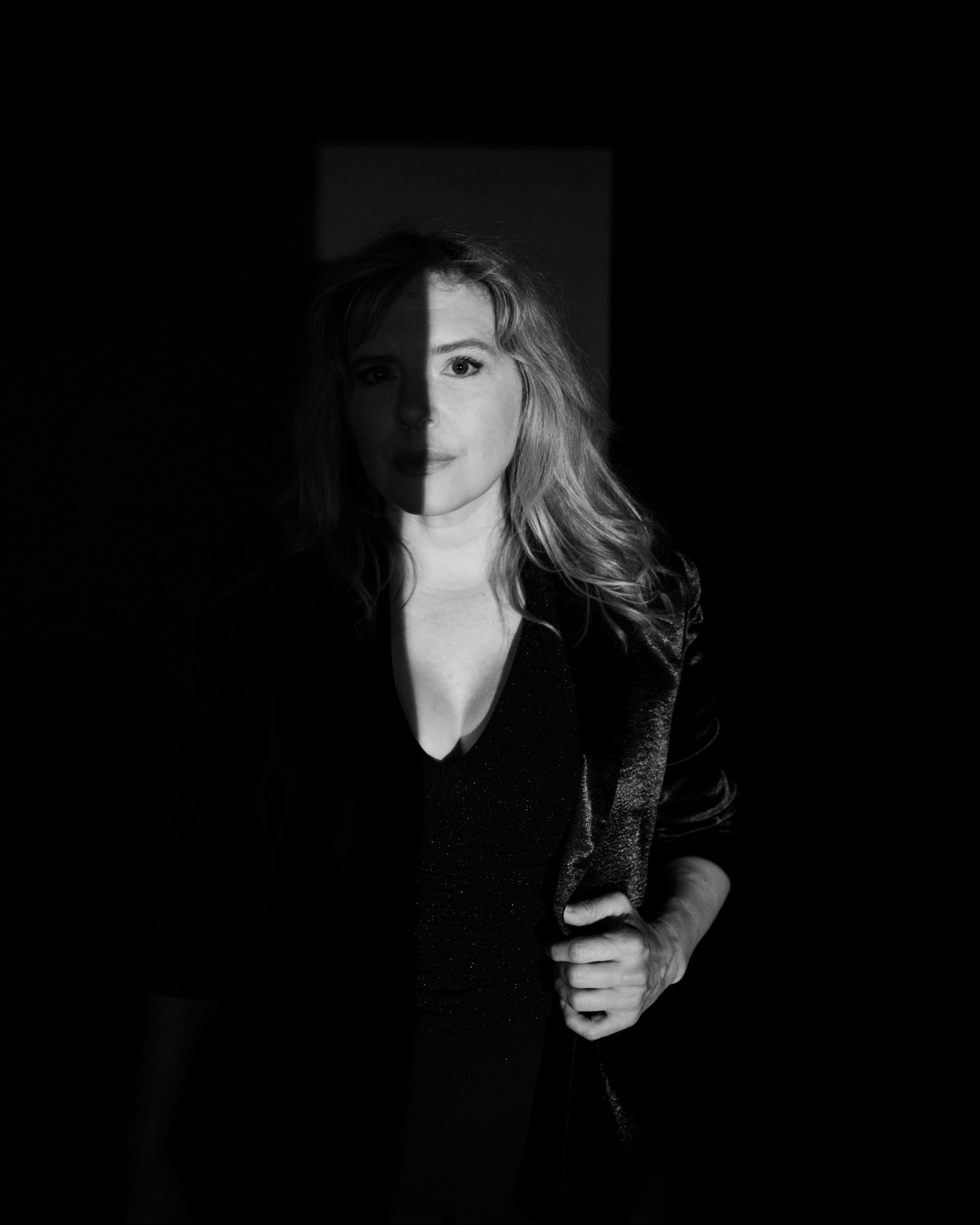
In your view, what can society to do to best support artists, creatives and a thriving creative ecosystem?
The current climate is really hard for indie musicians. The music we pour our hearts, time, energy, and savings into is considered by streaming platforms, and thus society as a whole, as “free content.” We are also expected to be prolific content creators and engaged social media experts in order to get our music heard. It all takes a lot of time and resources, yet the majority of musicians aren’t getting paid a living wage, so many of us have day jobs and side hustles as well. It’s a danger to the depth and quality of our work when artists are forced to wear too many hats. In general, I feel like there isn’t much respect for the work of artists, and that’s reflected in our income. Sometimes there’s a feeling of “you’re lucky we’re giving you an opportunity to have your music heard, so we don’t need to pay you” or “you get to do what you love, and that’s worth more than money.” There’s so much talk about how music heals and how it’s an integral part of the human experience, but then a contradictory disregard for the well-being of the musicians making that music. Society seems fine with the two extremes of ‘starving artist’ and rockstar rolling in millions. In America, there’s this Darwinian mystique—a survival of the fittest mentality where only those who “make it” are valid artists. I’ve heard that in some European countries, the government offers financial support to artists and their creative process simply because they value it in their society. It would be nice if America had a bit more of that, but I’m not so sure it would fly here.
In order to create a thriving creative ecosystem where we can truly explore our artistic visions and offer them to the world, artists need to make a living wage. In my experience, fans really <i>do</i> want to support their favorite artists; they just aren’t offered an easy way to do this. On an individual level, fans can best support musicians by buying directly from the artist when possible. Buy from their website stores or in person at shows. Online, platforms like Patreon and Bandcamp are more direct fan-to-artist support systems. Buy tickets to live shows and help spread the word to others. In this era of AI and digital noise, I believe grassroots human-to-human interaction is crucial to the creative community.
On a societal level, we need laws to protect artist royalties and impose strict limits on what AI can do with our IP. We need streaming and downloading platforms to pay better and list credits so all project contributors can be honored. We need an expanded Endowment for the Arts and more grants to get our projects off the ground. We need venues that pay fairly and ticket vendors who don’t jack up prices for fans. There are also small changes that would help musicians. For example, selling merchandise after the show is critical for musicians—sometimes it’s the only money coming in. Venues that are serious about supporting indie music need to have a dedicated area for artists to sell to fans. I can’t count how many shows where there simply wasn’t room in a venue to display or sell merchandise, and that means very little or zero sales. I don’t have all the answers, but I do know that any way we can respect the artist’s well-being, the better the music. End rant.
Contact Info:
- Website: https://www.andreawittgens.com
- Instagram: https://www.instagram.com/andreawittgens
- Facebook: https://www.facebook.com/andreawittgensmusic
- Youtube: https://www.youtube.com/user/andreawittgens
- SoundCloud: https://soundcloud.com/andreawittgens
- Other: https://andreawittgens.bandcamp.com/music
Image Credits
All photos by Julia Drummond


